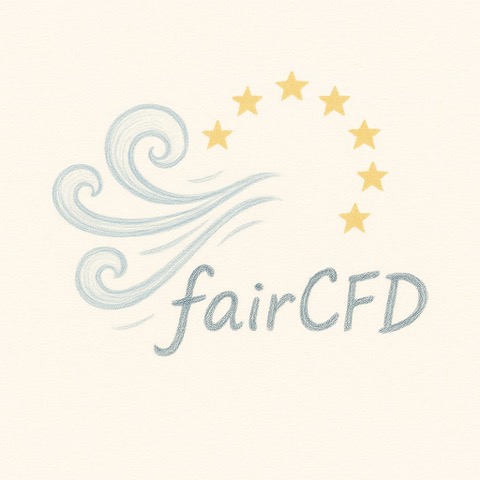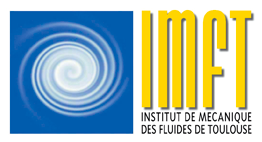
FairCFD
Frugal & Accurate Innovation for Responsible CFD
DC2: Efficient Simulation an Optimization of Buoy Arrays for Wave Energy Harvesting
This is much more than just a PhD position!
Within the FairCFD Doctoral Network, you will benefit from a unique three-fold experience:
– Contribute to technological innovation in the field of marine renewable energy, in direct collaboration with an industrial partner (CorPower Ocean), by developing advanced and efficient CFD strategies.
– Take part in a network-wide interdisciplinary effort to define and promote numerical sustainability in scientific research.
– Join a vibrant network of 15 doctoral candidates, across 9 European countries, with access to cutting-edge network events, high-level training to technical and transverse skills, and secondments in both academic and industrial environments.
See our website for more details on the network’s philosophy and actions along with description of the other PhD positions (https://www.imft.fr/faircfd/project-presentation/).
Scientific background
Ocean waves offer a vast and untapped source of renewable energy. Among various harvesting technologies, arrays of vertically oscillating buoys have shown great promise. CorPower Ocean is currently developing such systems, and this PhD will contribute directly to their performance evaluation and optimization. To date, most numerical studies rely on linearized, potential-flow models—ideal for early design stages but insufficient for predicting nonlinear and viscous effects, which become dominant in realistic sea states or for sharp-edged buoy geometries. Moreover, optimization of buoy geometry and layout is computationally demanding, requiring new strategies based on adjoint methods and machine learning.
Selected bibliography:
Achour, N. (2022). Interactions fluide-structure proche de la surface libre: application à la récupération d’énergie et aux instabilités (Doctoral dissertation, Université Paul Sabatier-Toulouse III).
Abbaspour, M., & Farshforoush, A. (2024). Optimal arrangements for semi-submersible cylindrical wave energy converters: A study in layout optimization and power extraction efficiency. Ocean Engineering, 296, 116833.
Falcão, A. F. D. O. (2010). Wave energy utilization: A review of the technologies. Renewable and sustainable energy reviews, 14(3), 899-918.
Your Research Program
The objective is to design numerically frugal simulation and optimization strategies in line with FairCFD’s principles of efficiency and sustainability. Key tasks:
- Local simulation of a single buoy
Develop high-fidelity, open-source simulations including nonlinear and viscous effects (e.g., using OpenFOAM or Reef3D); Study both free oscillations and forced harmonic motions, enabling limit-cycle analysis and impedance modeling.
- Simulation of large buoy arrays
Develop efficient models for periodic arrays using Bloch wave methods (tasked shared with DC6, ONERA); Combine potential models (FreeFem++, Reef3D) with reduced-order approaches for large-scale layout analysis.
- Optimization using ML and/or adjoint methods
Experiment ML-based approach to extend and enhance simulations, including (i) transfer function reconstruction from sparse data (Loewner framework ; with DC7, ONERA), and possibly (ii) hybrid ML involving Baysian optimization and/or reduction to low-amplitude dynamical systems.
- Participation to improvement of the energy harvester design in direct link with the industrial partner (CorPower Ocean).
Where you will work
For the main part of your work, you will be hosted in Institut de Mécanique des Fluides de Toulouse (IMFT). Affiliated to both Toulouse University, Toulouse-INP and CNRS, IMFT is a world-leading research institute in fluid mechanics. It hosts more than 150 researchers, engineers, and PhD students, and covers a wide range of topics including turbulence, multiphase flows, environmental and industrial fluid dynamics. IMFT offers access to cutting-edge experimental facilities and high-performance computing resources, as well as a stimulating interdisciplinary environment with strong academic and industrial collaborations.
Integration within the FairCFD Network
Within the FairCFD network, you will contribute mainly to WP1: Efficient physics-based numerical methods and WP2: Efficient data-based approaches. You will regularly exchange with other DCs of the network applying similar approaches to other problems, and/or applying different numerical methods to similar problems.
Three secondments are planned during the PhD: (i) CorPower Ocean (6 months): data collection and model validation from industrial prototypes; (ii) Eel Energy (2 months): exposure to a different industrial approach to wave energy; (iii) UPM, Madrid (3 months): ML-based optimization methods applied to renewable energy systems.
Interdisciplinary task: co-designing numerical frugality
Beyond your individual research program described above, you will contribute along with all other FairCFD doctoral candidates to a network-wide multidisciplinary effort (WP5) addressing the environmental and societal dimensions of numerical simulation.
Each DC will participate in the definition of practical metrics for numerical frugality (computational cost, energy use, resource impact) and contribute data from their simulations to a collective meta-analysis. This initiative will be supported by interdisciplinary experts and accompanied by a dedicated DC in social sciences, who will lead a qualitative study on evolving practices in simulation across the network. Together, we aim to build concrete, informed recommendations for sustainable scientific computing.
Network Training Program — More Than Just a PhD
As a Doctoral Network funded by Marie Slodowska-Curie Actions (MSCA-DN), FairCFD will offer to you a rich and engaging training experience, including
- Four one-week training events; (i) an induction week devoted to team-building, open-science practices and sustainability issues, (ii) an Essential Skills Accelerator event combining aiming to to equip DCs with essential technical and transferable skills, (iii) a Hackathon event where DCs will collaborate in teams to solve complex physics problem and compare various simulation strategies in terms of precision and sobriety, and (iv) a Career and Leadership Development Forum Aiming to equip DCs with transferable skills essential for their future careers.
- Five On-line courses combining technical training to state-of-the art simulation methods ranging from physics-based approaches to data-driven ones, exposition to industrial applications, along with Social, ethical and environmental aspects of decision-making in modelling practices.
- Involvement in the organisation of scientific events, including a mini-symposium as part of a large-audience scientific conference, a scientific symposium allowing to share the output in terms of new methods, innovation, and applications to industrial processes, and a Societal colloquium to deliver the outputs of the multidisciplinary tasks of the network.
This programme is designed to support your growth as a researcher, innovator, and engaged citizen, fully equipped to lead the next generation of responsible simulation science. See our website for more details (https://www.imft.fr/faircfd/project-presentation/)
Additional Informations
Skills/Qualifications
- Master’s degree (or equivalent) in fluid mechanics, applied mathematics, scientific computing, or related fields.
- Strong background in fluid mechanics, numerical methods, PDEs, and/or data-driven modeling.
- Interest in interdisciplinary research and open science.
Benefits
The successful candidates will receive an attractive salary in accordance with the MSCA regulations for Doctoral Researchers. The exact (net) salary will be confirmed upon appointment and is dependent on local tax regulations and on the country correction factor (to allow for the difference in cost of living in different EU Member States). The salary includes a living allowance, a mobility allowance, and a family allowance (if applicable). The guaranteed PhD funding is for 36 months (i.e., EC funding, additional funding is possible, depending on the local Supervisor, and in accordance with the regular PhD time in the country of origin).
Eligibility criteria
According to the international mobility rules of the MSCA-DN program, the candidates must not have spent more than 12 months in the hosting country (France), during the 36 months preceding the starting of the PhD. Apart from this rule, worldwide applications are expected and encouraged.
Selection process
The application process will be officially opened in February 2026. Meanwhile, additional information on the position and the whole network can be obtained by contacting the supervisors along with the DN coordinating team. For this sake, please contact us through the following link:
Additional comments
A start date will be negotiated with the successful candidate. Ideally start dates would be between March 2026 and June 2026, with a potential to extend the start date to October 2026.
